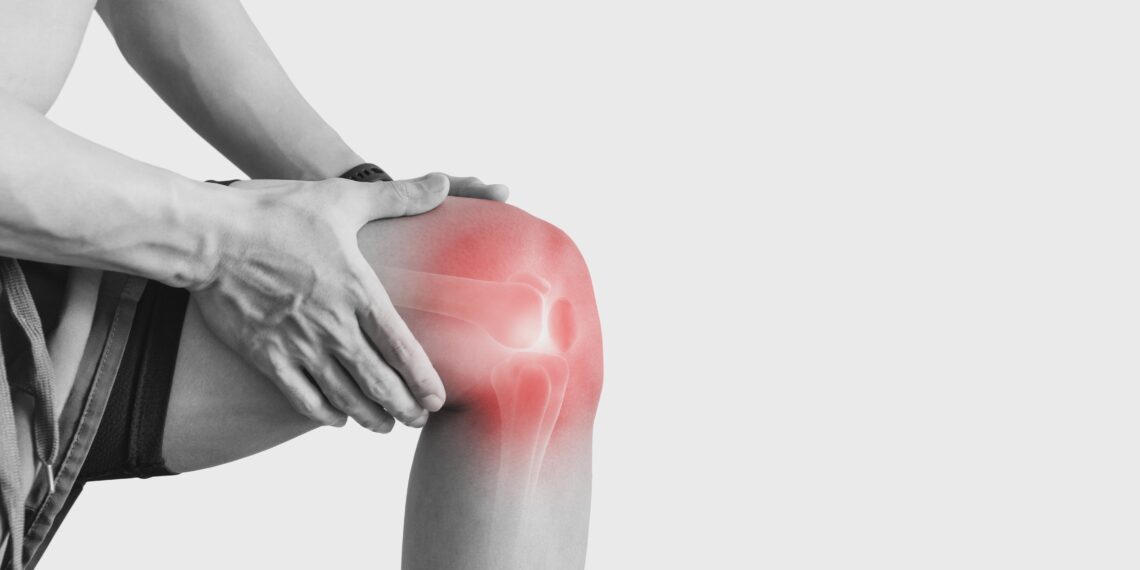Stiffness, discomfort, and reduced mobility can significantly impact your quality of life. If you’re experiencing joint pain—whether from aging, physical activity, or an underlying condition—certain dietary supplements may help alleviate symptoms and support joint health. In this guide, we’ll explore some of the most popular joint-support supplements, discuss scientific backing, and offer tips on choosing the right product for your needs.
Disclaimer: This article is for informational purposes only and does not replace professional medical advice. Consult with a healthcare provider before starting any new supplement, especially if you have an underlying health condition or are taking other medications.
1. Why Consider Supplements for Joint Support?
Joint pain often arises from inflammation, cartilage breakdown, or nutritional deficiencies. While medication, physical therapy, and lifestyle changes (like exercise) play pivotal roles, supplements can complement these treatments by providing nutrients that may help protect and rebuild joint structures.
- Inflammation Control: Many supplements offer anti-inflammatory properties.
- Cartilage Maintenance: Certain nutrients support healthy cartilage regeneration.
- Ease of Use: Pills or powders can often be easily added to a daily routine.
Need more guidance on managing joint pain? Visit the Arthritis Foundation for detailed resources and expert insights.
2. Top Joint-Support Supplements
Glucosamine & Chondroitin
- What It Is: Glucosamine and chondroitin are natural components of cartilage, commonly derived from shellfish or made synthetically.
- How It Helps: May assist in maintaining and rebuilding cartilage, potentially reducing pain and stiffness.
- Backed By: National Institutes of Health, some studies show mild benefits for osteoarthritis.
- Brands to Consider: Nature Made Glucosamine Chondroitin, Puritan’s Pride
MSM (Methylsulfonylmethane)
- What It Is: An organic sulfur compound found in plants and animals.
- How It Helps: Often included in joint health supplements to reduce inflammation and improve range of motion.
- Research: Some evidence suggests it may have anti-inflammatory effects and help reduce joint soreness.
- Brands to Consider: NOW MSM, Doctor’s Best MSM
Omega-3 Fatty Acids (Fish Oil)
- What It Is: Essential fatty acids (EPA and DHA) with potent anti-inflammatory properties.
- How It Helps: May help reduce joint swelling and stiffness, especially beneficial for those with rheumatoid arthritis.
- Research: Mayo Clinic highlights fish oil’s benefits for heart and joint health.
- Brands to Consider: Nordic Naturals, Carlson Labs Fish Oil
Turmeric (Curcumin)
- What It Is: A spice containing curcumin, known for its strong anti-inflammatory properties.
- How It Helps: May help alleviate joint pain by reducing inflammation pathways in the body.
- Research: Studies show curcumin’s effectiveness in managing symptoms of osteoarthritis.
- Brands to Consider: Qunol Turmeric, Gaia Herbs Turmeric Supreme
Boswellia Serrata (Indian Frankincense)
- What It Is: Resin from the Boswellia tree, traditionally used in Ayurvedic medicine.
- How It Helps: May inhibit inflammatory enzymes and help reduce pain.
- Research: Some clinical trials show improvements in knee osteoarthritis symptoms.
- Brands to Consider: NOW Boswellia Extract, Himalaya Boswellia
Collagen
- What It Is: The primary protein in connective tissues, including cartilage, bone, and ligaments.
- How It Helps: Supplementing may support cartilage regeneration and overall joint integrity.
- Research: Some evidence suggests hydrolyzed collagen might improve joint function.
- Brands to Consider: Vital Proteins Collagen Peptides, Sports Research Collagen Peptides
3. How to Choose the Right Supplement
Not all supplements are created equal. Here’s what to look for:
- Quality Assurance
Check for third-party testing from organizations like NSF International or USP. - Reputable Brands
Well-known manufacturers often uphold stricter quality control and ingredient sourcing. - Proper Formulation
Some supplements, like curcumin, absorb better when paired with black pepper extract (piperine) or certain fats. - Consult Healthcare Providers
Discuss potential interactions with existing medications or health conditions.
4. Quick Alternatives to Traditional Supplements
If you prefer to avoid capsules and powders, other approaches may still support joint health:
Functional Foods
- Examples: Fatty fish, bone broth, ginger, and leafy greens.
- Benefits: A whole-foods diet naturally delivers anti-inflammatory and joint-supporting nutrients.
Topical Solutions
- Examples: Capsaicin creams, menthol-based gels.
- Pros: Targeted relief for localized pain.
- Cons: Effects may be temporary; not a systemic solution.
Lifestyle Modifications
- Weight Management: Excess weight puts stress on weight-bearing joints like knees and hips.
- Low-Impact Exercise: Activities like swimming or yoga can strengthen muscles without overstraining joints.
- Physical Therapy: Personalized exercises and stretches may alleviate pain and improve mobility.
Pros and Cons of Common Joint-Support Supplements
| Supplement | Pros | Cons |
|---|---|---|
| Glucosamine & Chondroitin | May help rebuild cartilage, reduce osteoarthritis symptoms | Mixed clinical results, potential shellfish allergen |
| MSM | Anti-inflammatory, often paired with glucosamine/chondroitin | Some users experience digestive issues |
| Omega-3 (Fish Oil) | Strong anti-inflammatory effects, heart-healthy benefits | Risk of fishy aftertaste, can thin blood in high doses |
| Turmeric (Curcumin) | Potent anti-inflammatory, natural herbal remedy | Low bioavailability without piperine or dietary fat |
| Boswellia | May inhibit inflammatory enzymes, beneficial for arthritis | Additional research needed for long-term effects |
| Collagen | May improve cartilage and connective tissue health | Efficacy can vary, results may take time |
Tips for Maximizing Joint Health
Even the best supplements work best when supported by healthy habits:
- Stay Hydrated
Adequate water intake helps maintain the lubrication in your joints. - Engage in Low-Impact Exercise
Activities like swimming, biking, or pilates can strengthen muscles that support joints. - Focus on Nutrient-Dense Foods
Incorporate fruits, vegetables, whole grains, and lean proteins for a balanced diet. - Monitor Progress
Keep track of your symptoms and consult a healthcare professional for adjustments.
Conclusion: Choosing the Best Supplement for Your Joint Needs
From glucosamine and chondroitin to curcumin and collagen, there’s a wide array of supplements that may help ease discomfort and improve mobility. However, results can vary, and not every option works for everyone. Discussing your goals and concerns with a healthcare professional is essential in creating a personalized plan.
Start here:
- Explore NIH Information on Dietary Supplements
- Learn About Managing Arthritis Pain
- Check for Reputable Supplement Brands
With the right combination of supplements, balanced nutrition, and an active lifestyle, you’ll be on your way to more comfortable, flexible, and healthier joints.




